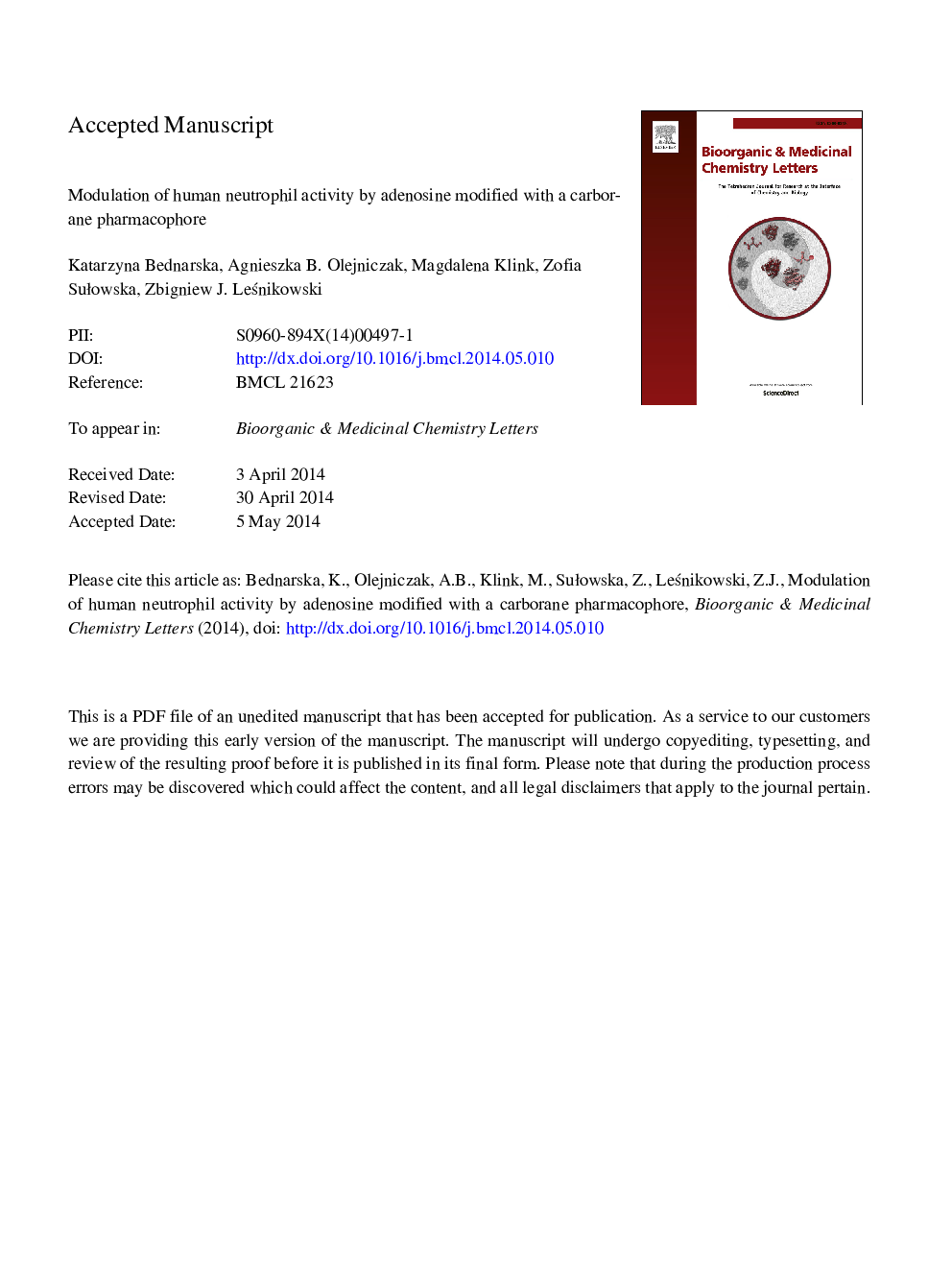| Article ID | Journal | Published Year | Pages | File Type |
|---|---|---|---|---|
| 10591776 | Bioorganic & Medicinal Chemistry Letters | 2014 | 9 Pages |
Abstract
An impact of adenosine modification with electroneutral, lipophilic 1,12-dicarba-closo-dodecaborane or electronegative 7,8-dicarba-nido-undecaborane boron cluster at the 6-N, 2â²-C and 2-C positions on human neutrophil oxidative burst, neutrophil adherence to fibronectin and protein kinase C activity was studied. Modification of adenosine with 1,12-dicarba-closo-dodecaborane, but not 7,8-dicarba-nido-undecaborane, changes the function of adenosine from an inactive to an active state in regulating neutrophil response to PMA stimulation by reducing neutrophils' reactivity through a mechanism involving the PKC signaling pathway. Our results show that exogenously administered adenosine derivatives can be useful in regulating the oxidative burst of neutrophils in the inflammatory process.
Related Topics
Physical Sciences and Engineering
Chemistry
Organic Chemistry
Authors
Katarzyna Bednarska, Agnieszka B. Olejniczak, Magdalena Klink, Zofia SuÅowska, Zbigniew J. LeÅnikowski,
